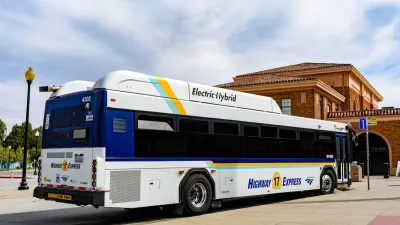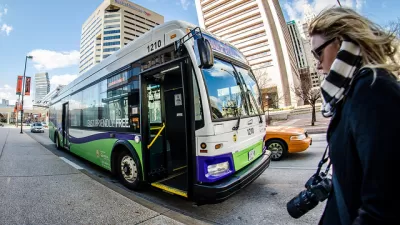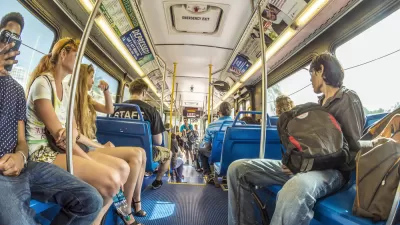After reading this story about a transit agency surveying their customers, I thought to myself: do riders really want another survey asking whether they are satisfied or how clean the stations are? Although clean stations are certainly better than unclean stations, I suspect that these are not transit riders' major priorities. (And when I say "transit riders" I really of course mean "myself").
After reading this story about a transit agency surveying their customers, I thought to myself: do riders really want another survey asking whether they are satisfied or how clean the stations are? Although clean stations are certainly better than unclean stations, I suspect that these are not transit riders' major priorities. (And when I say "transit riders" I really of course mean "myself").
A bus is not a home. A bus (or train) is someplace you spend a few minutes in on the way to home or work (or some other destination). So the most important thing about a bus or train is whether it gets you to your ultimate destination quickly and reliably.
If I am right, the most important thing about my transit service is whether it stays quick and reliable by surviving the next round of budget cuts.(1) So maybe transit authorities should be surveying their customers about how to deal with austerity. For example, a transit authority could ask customers whether, assuming other government agencies will not close a gap between revenues and spending, the authority should solve that revenue gap through:
*raising fares by amount X (X being the amount needed to close the revenue gap)
*eliminating bus routes X, Y and Z (X, Y and Z being the bus routes most likely to be eliminated)
*increasing headways (time between buses), and/or
*curtailing late-night service (and of course whatever other options the transit authority might consider!)
These sorts of questions would certainly be of more interest to me than a survey asking how satisfied I am.
(1) Or, in good times, is improved as revenue grows.

Planetizen Federal Action Tracker
A weekly monitor of how Trump’s orders and actions are impacting planners and planning in America.

Maui's Vacation Rental Debate Turns Ugly
Verbal attacks, misinformation campaigns and fistfights plague a high-stakes debate to convert thousands of vacation rentals into long-term housing.

San Francisco Suspends Traffic Calming Amidst Record Deaths
Citing “a challenging fiscal landscape,” the city will cease the program on the heels of 42 traffic deaths, including 24 pedestrians.

Defunct Pittsburgh Power Plant to Become Residential Tower
A decommissioned steam heat plant will be redeveloped into almost 100 affordable housing units.

Trump Prompts Restructuring of Transportation Research Board in “Unprecedented Overreach”
The TRB has eliminated more than half of its committees including those focused on climate, equity, and cities.

Amtrak Rolls Out New Orleans to Alabama “Mardi Gras” Train
The new service will operate morning and evening departures between Mobile and New Orleans.
Urban Design for Planners 1: Software Tools
This six-course series explores essential urban design concepts using open source software and equips planners with the tools they need to participate fully in the urban design process.
Planning for Universal Design
Learn the tools for implementing Universal Design in planning regulations.
Heyer Gruel & Associates PA
JM Goldson LLC
Custer County Colorado
City of Camden Redevelopment Agency
City of Astoria
Transportation Research & Education Center (TREC) at Portland State University
Jefferson Parish Government
Camden Redevelopment Agency
City of Claremont






























